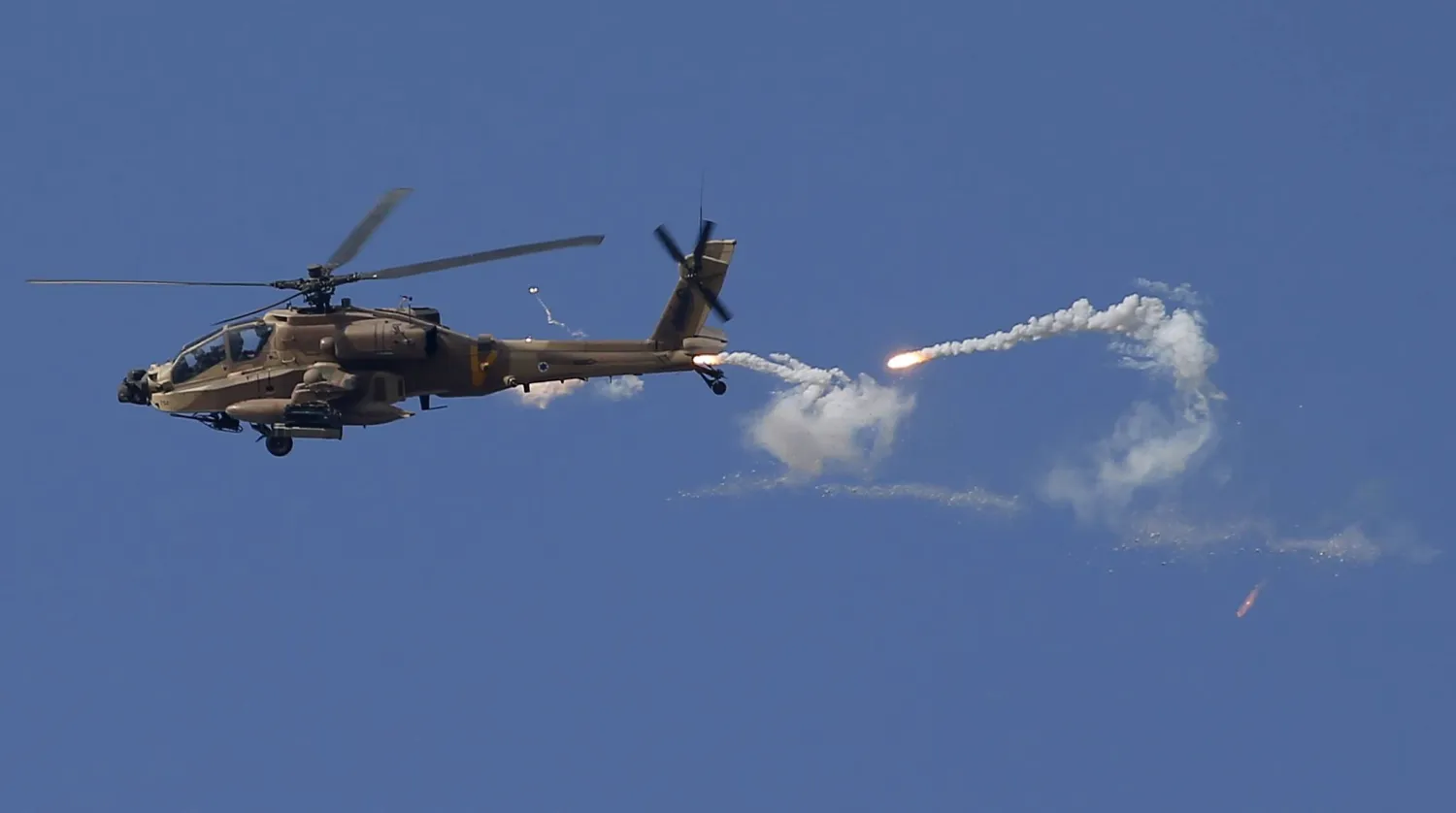Israeli forces hit the city of Jenin with drone strikes on Monday as part of one of the biggest West Bank operations in 20 years, killing at least eight people and involving hundreds of troops in gun battles that continued into the afternoon.
Gunfire and explosions were heard throughout the day as fighting continued between Israeli troops and fighters from the Jenin Brigades, a unit made up of armed groups based in the city's crowded refugee camp.
"What is going on in the refugee camp is real war," said Palestinian ambulance driver Khaled Alahmad. "There were strikes from the sky targeting the camp, every time we drive in, around five to seven ambulances and we come back full of injured."
At times during the morning, at least six drones could be seen circling over the city and the adjoining camp, a densely packed area housing around 14,000 refugees in less than half a square kilometer.
The camp has been at the heart of an escalation of violence across the West Bank that has triggered mounting alarm from Washington to the Arab world, without so far opening the way to a resumption of political negotiations that have been stalled for almost a decade.
For more than a year, army raids in cities such as Jenin have become routine, while there have been a series of deadly attacks by Palestinians against Israelis and rampages by Jewish settler mobs against Palestinian villages.
The Palestinian health ministry confirmed at least eight people had been killed and more than 50 wounded in Jenin, while another man was killed in Ramallah overnight, shot in the head at a checkpoint.
The Israeli military said its forces struck a building that served as a command center for fighters from the Jenin Brigades in what it described as an extensive counterterrorism effort aimed at destroying infrastructure and disrupting fighters from using the refugee camp as a base.
As the operation proceeded, Israeli armored bulldozers ploughed up roads in the camp, cutting city water supplies, the Jenin municipality said as residents described soldiers breaking through the walls to pass from house to house.
"Nothing is safe in the camp. They dug up the roads with bulldozers. Why? What did the camp do?" said Hussein Zeidan, 67, as he recovered from his wounds in hospital.
An Israeli military spokesman said the operation would last as long as needed and suggested forces could remain for an extended period. "It could take hours, but it could also take days. We are focused on our goals," he said.
Until June 21, when it carried out a strike near Jenin, the Israeli military had not used drone strikes in the West Bank since 2006. But the growing scale of the violence and the pressure on ground forces meant such tactics may continue, a military spokesman said.
"We're really stretched," the spokesman told journalists. "It's because of the scale. And again, from our perception, this will minimize friction," he said, adding that the strikes were based on "precise intelligence".
'Hornets' nest'
Monday's operation, involving a force described as "brigade-size" - suggesting around 1,000-2,000 troops - was intended to help "break the safe haven mindset of the camp, which has become a hornets’ nest," the spokesman said.
A spokesman for Palestinian President Mahmoud Abbas called the operation "a new war crime against our defenseless people," while UN Middle East envoy Tor Wennesland said he was talking with all parties to de-escalate and ensure humanitarian access.
Hundreds of fighters from armed groups including Hamas, Islamic Jihad and Fatah are based in the camp, which was set up 70 years ago to house refugees in the aftermath of the 1948 Palestine war. The fighters have an array of weapons and a growing arsenal of explosive devices.
The Israeli military, which regularly accuses militant groups of basing fighters in civilian areas, said troops seized an improvised rocket launcher and hit a weapons production and explosives storage facility with hundreds of devices ready to be used as well as radios and other equipment.
It was unclear whether the incursion would trigger a wider response from Palestinian factions, drawing in militant groups in the Gaza Strip, the coastal enclave controlled by Hamas.
Saleh Al-Arouri, accused by Israel of leading the Hamas military wing in the West Bank, told Aqsa TV that fighters in Jenin should try to capture Israeli soldiers.
"Our fighters will rise from everywhere, and you will never know where the new fighter will come from," he said.
Israeli Defense Minister Yoav Gallant said his forces were "closely monitoring the conduct of our enemies," with the defense establishment "ready for all scenarios."
Following the last major raid in Jenin in June, Palestinian gunmen killed four Israelis near a Jewish settlement in the West Bank. That led to a rampage by mobs of settlers in Palestinian villages and towns.
Israel captured the West Bank, which the Palestinians see as the core of a future independent state, in the 1967 Middle East war. Following decades of conflict, peace talks that had been brokered by the United States have been frozen since 2014.









